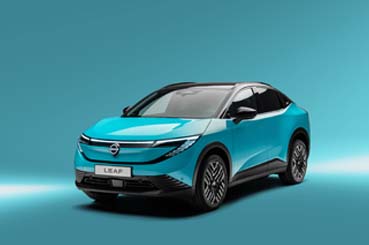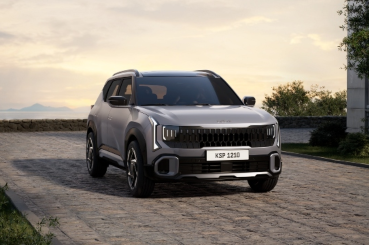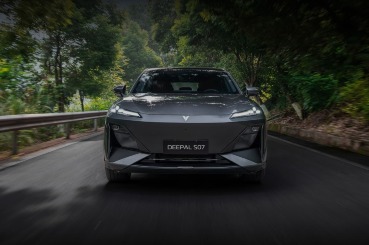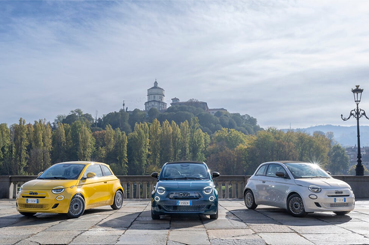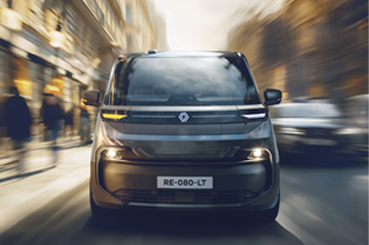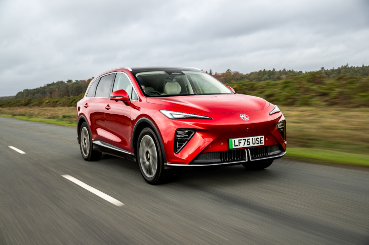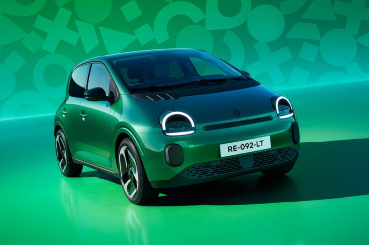There is a lot of misinformation out there about electric cars. Some people think they are slow and inconvenient, while others believe they are not as environmentally friendly as they seem. In this blog post, we will debunk some of the most common myths about electric cars and set the record straight.
Electric cars are becoming more popular every day, and it’s important to understand the truth about them before you make a purchase!

1: Are Electric Vehicles New Technology?
A common question is when the first electric car was made and why it seems like a modern invention. Electric vehicles have actually been around for over 138 years.
They weren’t an overnight invention – various inventors worldwide contributed different elements. Notable figures like Thomas Parker, the British inventor who electrified the London Underground, created the first production electric vehicle using specially designed rechargeable high-capacity batteries.
At the time, electric vehicles were considered highly efficient alternatives to petrol cars because they didn’t stall or require hand cranking. They became increasingly popular and were integrated into daily life in cities worldwide.
Although electric vehicle production declined in the 1890s when petrol cars became more available, the idea that electric vehicles are ‘new’ technology is a myth – they’ve been around much longer than most people realize.
2: Low Capacity of Charge Points in the UK
While there is truth to the myth that there are not enough charging points in the UK, it’s not as bad as it may seem.
There are now over 82,000 public electric vehicle charging points in the UK, compared to just over 8,000 filling stations. This is a growth of 27% in the past year alone.
Yet new research shows that we could need between 253,000 and 661,000 extra electric vehicles (EV) charge points by 2035 to meet the phase-out of internal combustion engine (ICE) vehicles.
While this is a large task, installation and setting up the electric infrastructure doesn’t come too expensive; it typically costs anywhere between £500 and £2,500 to install a single charge point. This cost can even be lower for those eligible for government grants or subsidies. So with these changes in mind, it looks like the UK will have to step up its game regarding charging points!

3: EVs are Not Viable for City Driving
Electric cars have often been accused of being an impractical method of transport in cities due to how they are charged, and the pressing need to break often while driving in built-up areas.
This is a common misconception; electric cars actually have the added bonus of an energy-efficient regenerative braking system, which captures energy each time you break.
So, how does an electric car work? It regenerates power as you go along and stores it for later use! This process also helps to extend the range of your electric vehicle between charges.
In essence, electric cars are perfectly well-suited to city driving and make navigating urban areas with their frequent stopping and starting much simpler than before.
4: Electric Cars are Too Quiet
It is a common misconception that electric cars are too quiet, however, this is simply not true.
Legislation has been introduced across the globe to require electric vehicles to include artificial noise when driving, as these cars produce significantly less sound than traditional vehicles.
This means that electric cars will no longer be completely silent on the roads, but instead be more audible than regular cars, ensuring that pedestrians and cyclists have plenty of time to react and reducing the risk of being involved in an accident.
Therefore it can be argued that while EVs may still appear to be quieter from inside the car, they are now louder from outside the vehicle making them easier to detect on roads.

5: Expensive Road Tax
The landscape of electric vehicle taxation has changed significantly. While electric cars were previously exempt from road tax, new rules introduced on 1 April 2025 mean EV owners now pay road tax for the first time.
Electric vehicle owners now pay £10 for their first year of road tax, followed by the standard rate of £195 per year from the second payment onwards.
EVs with a list price over £40,000 face an additional £425 per year luxury car supplement for five years, meaning these owners pay £620 annually between years two and six.
Despite these new tax requirements, electric vehicles still offer compelling financial advantages through lower running costs and reduced fuel expenses. Cost-conscious drivers should factor these changes into their purchasing decisions.
6: Charge Time is Too Long
Electric cars are growing in popularity, and while they tend to be more cost-effective than petrol cars in the long term, some people believe that it takes too long to charge them. However, this concern is becoming increasingly outdated as charging technology advances rapidly.
Modern electric vehicles can now achieve remarkable charging speeds. Many 2025 electric vehicles can reach 80% charge in 18-35mins at ultra-rapid charging stations, with some premium models adding nearly 170 miles of range in just 10mins.
Advanced battery systems can now charge 30% in just 5mins, and some models can add over 100 miles of range in as little as 10-12mins of charging.
With advances being made constantly, questions like “how long does it take to charge?” have increasingly positive answers. Today’s technology makes electric vehicles faster to charge than ever before, with charging times that rival a traditional fuel stop for many journey types.

7: Electric Cars are Worse for the Environment
For those asking should I buy an electric car? The answer is a resounding yes.
Contrary to popular belief, electric cars are not worse for the environment than traditional petrol or diesel vehicles.
This is because electric cars produce much less carbon dioxide and particulate matter emissions across their entire lifecycle – from production to driving on the roads – as compared to petrol-based cars.
For example, while petrol cars create 16.59 tonnes of CO2e per 47,000 miles driven, electric cars only produce 1.4 tonnes of CO2e. Plus, electricity is increasingly generated from renewable sources such as solar and wind power which makes electric vehicles even better for the environment.
Long story short: whether you’re concerned about climate or air pollution, driving an electric car should be your go-to choice for a greener future!
8: With No Gears, EVs Must Be Slow
People often think electric cars must be slow because they have no gears, however, this simply isn’t true.
While traditional internal combustion vehicles use different gears to maintain a steady speed and smooth power delivery, electric cars do not require them as they can instantly provide peak torque the moment you step on the accelerator.
This means that electric cars do have the ability to rapidly accelerate due to the instantaneous nature of their torque delivery which is impossible for any other fuel-type vehicle.
For those wondering are all electric cars automatic – the short answer is yes, the majority are, with the exception of one or two on the market as some manufacturers have continued to produce them with a gearbox and gearstick, to resemble the functionality of petrol cars which drivers have become accustomed to before their switch to electric.
All in all, electric cars are fast, fun to drive and convenient due to their instant torque and lack of gear changing making them an ideal choice for many drivers.

9: They are FAR Too Expensive
It is a common misconception that electric cars are too expensive to buy and maintain. In reality, how much an electric car costs depends on how it’s being used.
The purchase price may be higher than a traditional petrol-powered vehicle; however, you can save significantly over the long term due to reduced fuel costs, maintenance costs, and government incentives or rebates.
Electric cars also take advantage of advancements in technology, meaning they now come with longer-range capacity and enhanced performance benefits.
Once the initial outlay has been completed and cost savings have been taken into account you will soon see how investing in an electric car can really pay off.
10: The Electricity Grid Cannot Handle the Increase in Electric Cars
As the shift towards electric vehicles accelerates, the electricity grid in the UK is being designed to keep pace with this change.
In order to make sure that our energy needs can be met with clean and green power sources, the progression of renewable energy sources such as solar and wind are being developed.
Furthermore, the grid is being adapted and ‘evolved’ to ensure it can cope with changing requirements from consumers.
Although this transition is taking place gradually, over time it will create a more sustainable transport system for the UK.
The Verdict: Electric Cars Are Ready for Today
Electric cars are a great choice for those looking to reduce their carbon footprint and save money in the long-run. They have many advantages over traditional petrol vehicles, including superior performance due to instant torque delivery, no need for gears or gear changing and increasingly more affordable purchase prices.
Furthermore, electric car ownership is becoming easier as the electricity grid evolves with renewable energy sources being developed all of the time. With so many benefits now available it really does seem like an obvious decision to make the switch to electric!


